第18章 Chapter 3 Conspicuous Leisure(8)
In all grades and walks of life, and at any stage of the economic development, the leisure of the lady and of the lackey differs from the leisure of the gentleman in his own right in that it is an occupation of an ostensibly laborious kind. It takes the form, in large measure, of a painstaking attention to the service of the master, or to the maintenance and elaboration of the household paraphernalia; so that it is leisure only in the sense that little or no productive work is performed by this class, not in the sense that all appearance of labour is avoided by them. The duties performed by the lady, or by the household or domestic servants, are frequently arduous enough, and they are also frequently directed to ends which are considered extremely necessary to the comfort of the entire household. So far as these services conduce to the physical efficiency or comfort of the master or the rest of the household, they are to be accounted productive work. Only the residue of employment left after deduction of this effective work is to be classed as a performance of leisure.
But much of the services classed as household cares in modern everyday life, and many of the "utilities" required for a comfortable existence by civilised man, are of a ceremonial character. They are, therefore, properly to be classed as a performance of leisure in the sense in which the term is here used. They may be none the less imperatively necessary from the point of view of decent existence: they may be none the less requisite for personal comfort even, although they may be chiefly or wholly of a ceremonial character. But in so far as they partake of this character they are imperative and requisite because we have been taught to require them under pain of ceremonial uncleanness or unworthiness. We feel discomfort in their absence, but not because their absence results directly in physical discomfort; nor would a taste not trained to discriminate between the conventionally good and the conventionally bad take offence at their omission. In so far as this is true the labour spent in these services is to be classed as leisure; and when performed by others than the economically free and self-directed head of the establishment, they are to be classed as vicarious leisure.
The vicarious leisure performed by housewives and menials, under the head of household cares, may frequently develop into drudgery, especially where the competition for reputability is close and strenuous. This is frequently the case in modern life.
Where this happens, the domestic service which comprises the duties of this servant class might aptly be designated as wasted effort, rather than as vicarious leisure. But the latter term has the advantage of indicating the line of derivation of these domestic offices, as well as of neatly suggesting the substantial economic ground of their utility; for these occupations are chiefly useful as a method of imputing pecuniary reputability to the master or to the household on the ground that a given amount of time and effort is conspicuously wasted in that behalf.
In this way, then, there arises a subsidiary or derivative leisure class, whose office is the performance of a vicarious leisure for the behoof of the reputability of the primary or legitimate leisure class. This vicarious leisure class is distinguished from the leisure class proper by a characteristic feature of its habitual mode of life. The leisure of the master class is, at least ostensibly, an indulgence of a proclivity for the avoidance of labour and is presumed to enhance the master's own well-being and fulness of life; but the leisure of the servant class exempt from productive labour is in some sort a performance exacted from them, and is not normally or primarily directed to their own comfort. The leisure of the servant is not his own leisure. So far as he is a servant in the full sense, and not at the same time a member of a lower order of the leisure class proper, his leisure normally passes under the guise of specialised service directed to the furtherance of his master's fulness of life. Evidence of this relation of subservience is obviously present in the servant's carriage and manner of life.
The like is often true of the wife throughout the protracted economic stage during which she is still primarily a servant -- that is to say, so long as the household with a male head remains in force. In order to satisfy the requirements of the leisure class scheme of life, the servant should show not only an attitude of subservience, but also the effects of special training and practice in subservience. The servant or wife should not only perform certain offices and show a servile disposition, but it is quite as imperative that they should show an acquired facility in the tactics of subservience -- a trained conformity to the canons of effectual and conspicuous subservience. Even today it is this aptitude and acquired skill in the formal manifestation of the servile relation that constitutes the chief element of utility in our highly paid servants, as well as one of the chief ornaments of the well-bred housewife.